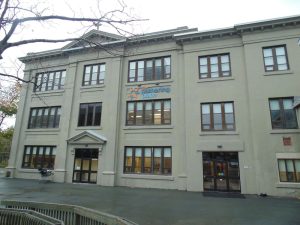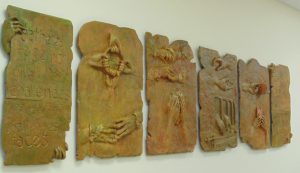The Sisters of Mercy of Newfoundland arrived in Peru in November 1961 when a group of six sisters took the long journey to participate in the mission of the Archdiocese of St. John’s in Monsefu, Chiclayo.
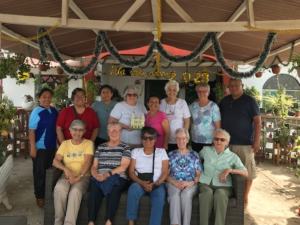 Our Sisters of Mercy now minister in two areas of the country – in Puerto Eten, Reque and Eten, in the Chiclayo region and in Huarmey, Ancash. Six sisters of the Congregation of the Sisters of Mercy of Newfoundland (including four native Peruvians) work with the people, especially those made poor, in towns and small villages in these two regions of Peru.
Our Sisters of Mercy now minister in two areas of the country – in Puerto Eten, Reque and Eten, in the Chiclayo region and in Huarmey, Ancash. Six sisters of the Congregation of the Sisters of Mercy of Newfoundland (including four native Peruvians) work with the people, especially those made poor, in towns and small villages in these two regions of Peru.
The sisters in Peru work closely with the people in catechetics, adult education, and in various aspects of parish and liturgical life. They serve as teachers, social workers, advocates and champions of social justice.
During the years of Covid 19 the Sisters were challenged to look for ways to respond to the numerous needs that arose at that 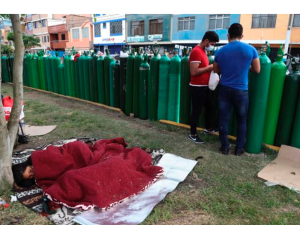 time. Peru was affected enormously by the onslaught of Covid and its health system collapsed totally. Together with our co-workers, the Conference of Religious of Lima, and The Conference of Religious of Chimbote, plans were made to look for and purchase an Oxygen Plant for the city of Chimbote.
time. Peru was affected enormously by the onslaught of Covid and its health system collapsed totally. Together with our co-workers, the Conference of Religious of Lima, and The Conference of Religious of Chimbote, plans were made to look for and purchase an Oxygen Plant for the city of Chimbote.
In the Diocese of Chiclayo the Sisters had much support from Caritas organization, along with many individuals and NGOs, especially for their outdoor neighborhood kitchens . These kitchens are the main way people receive a hot meal each day.
An additional threat to the Peruvian people is the advent of Dengue Fever spread by mosquitos. This is undoubtedly due to the recent rains and floods. Climate change is certainly obvious.
It´s important to add that during these years as well much effort has been dedicated to help individuals and families to begin small jobs or businesses. Thus they become more independent and able to provide for their families. This includes raising small animals, beginning a store, providing a kiosk so that a person can sell food, selling products on the street, helping seamstresses by providing sewing machines, etc.
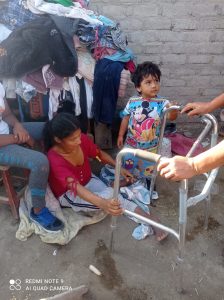 In the Diocese of Chiclayo the Sisters had much support from Caritas organization, along with many individuals and NGOs, especially for their outdoor neighborhood kitchens . These kitchens are the main way people receive a hot meal each day.
In the Diocese of Chiclayo the Sisters had much support from Caritas organization, along with many individuals and NGOs, especially for their outdoor neighborhood kitchens . These kitchens are the main way people receive a hot meal each day.
An additional threat to the Peruvian people is the advent of Dengue Fever spread by mosquitos. This is undoubtedly due to the recent rains and floods. Climate change is certainly obvious.
It´s important to add that during these years as well much effort has been dedicated to help individuals and families to begin small jobs or businesses. Thus they become more independent and able to provide for their families. This includes raising small animals, beginning a store, providing a kiosk so that a person can sell food, selling products on the street, helping seamstresses by providing sewing machines, etc.
The Sisters of Mercy and the Presentation Sisters in Newfoundland, along with some of the religious orders in Peru, provided 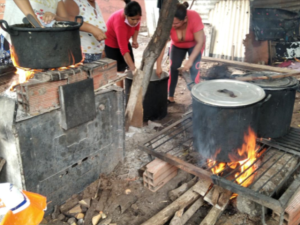 financial resources to obtain medical supplies and food for the people. Other aid came from the Peruvian government and other international agencies.
financial resources to obtain medical supplies and food for the people. Other aid came from the Peruvian government and other international agencies.
The Sisters were lead to recognize what they have lived through and are living through: the climatic disasters, the political instability, the insecurity, the corruption and terrific rise in violence. All of these factors affect them and their ministry. On the other hand they recognize the incredible resistance, resilience, courage and faith of the people shown and lived this past year. The gestures of solidarity at all levels has been quite visible.
Like all Sisters of Mercy, who live out the charism of Catherine McAuley, the Sisters in Peru continue reflections on questions, concerns and themes. They strive to “relieve misery, address its causes, and support all persons who struggle for full dignity” (Morning and Evening Prayer of the Sisters of Mercy, page 393)
Supporting the Ministry – Misericordia Mission Fund
Donations to the Misericordia Mission Fund, a registered charity established by the Sisters of Mercy of Newfoundland, are used in Peru to provide basic needs for poor families – food, clothing, fuel, medicine, education and shelter. Many children receive basic education and sometimes post secondary education through donations to the fund.
 These last couple of years the Mission Fund has been able to respond to many needs caused by anti-government protests in the country when people could not work as usual; then the very heavy rains and floods have taken away not only peoples place of work, but many have lost homes and possessions. The fund has been used to form comedores and ollas communes (dining areas and common pots) and was able to lessen hunger and disease in many pueblos. Migrants, older people, and children are a special concern for our communities and the Mission fund works constantly with our lay people and coordinators to identify their needs and respond.
These last couple of years the Mission Fund has been able to respond to many needs caused by anti-government protests in the country when people could not work as usual; then the very heavy rains and floods have taken away not only peoples place of work, but many have lost homes and possessions. The fund has been used to form comedores and ollas communes (dining areas and common pots) and was able to lessen hunger and disease in many pueblos. Migrants, older people, and children are a special concern for our communities and the Mission fund works constantly with our lay people and coordinators to identify their needs and respond.
All donations to the Misericordia Mission Fund are used in their entirety for the needs of poor people. Donations received by the Misericordia Mission Fund in Newfoundland are distributed by the Sisters who are ministering in Peru. Income tax receipts are issued for all donations to the fund.
Misericordia Mission Fund
P.O. Box 1757
St. John’s, Newfoundland, Canada A1C 5P5
 Dengue fever continues to rage in many parts of Peru. The country has extended its health emergency as it faces a record outbreak of the disease. So far there have been over 73, 000 cases and eighty deaths. In the Ancash region where Huarmey is located, there has been a considerable increase in the number of infections over the past month.
Dengue fever continues to rage in many parts of Peru. The country has extended its health emergency as it faces a record outbreak of the disease. So far there have been over 73, 000 cases and eighty deaths. In the Ancash region where Huarmey is located, there has been a considerable increase in the number of infections over the past month.

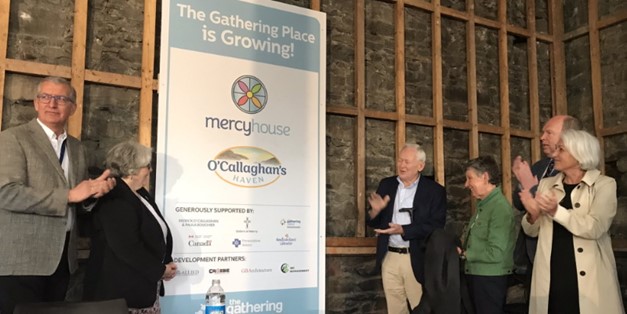
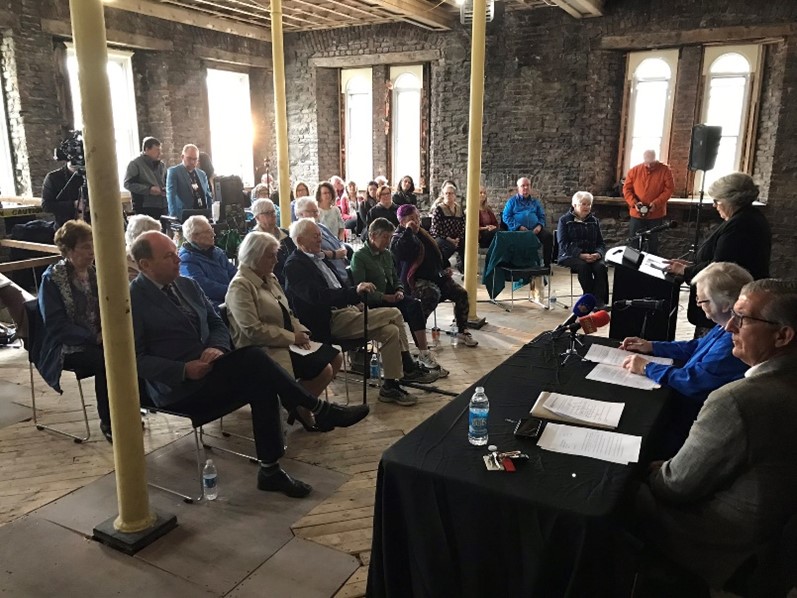
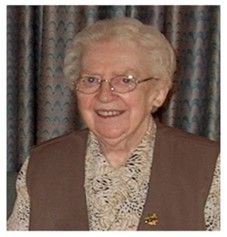 It is fitting that having celebrated
It is fitting that having celebrated 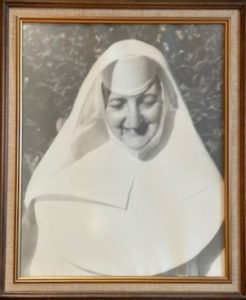 Alice Maud Gladney, known to us as Sister Mary Bernard, was born in Portugal Cove in December of 1883. Her reception into the Sisters of Mercy in April 1902 was the first of many reception and profession ceremonies to take place in the new Littledale chapel, constructed in that same year as part of the Talbot Wing on the Littledale property..
Alice Maud Gladney, known to us as Sister Mary Bernard, was born in Portugal Cove in December of 1883. Her reception into the Sisters of Mercy in April 1902 was the first of many reception and profession ceremonies to take place in the new Littledale chapel, constructed in that same year as part of the Talbot Wing on the Littledale property..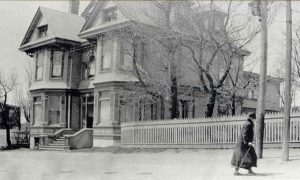
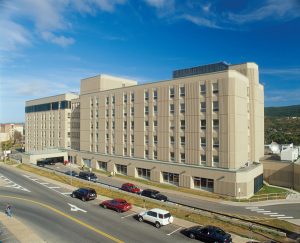
 What must have been their thoughts as they looked upon the forbidding landscape with its towering rocky c liffs and craggy head lands ? Although they had seen poverty in Ireland, t he abject poverty of this place with its rude shacks and derelict fishing stages perched on the side of the hills, would have seared their hearts and minds. Sister Francis had lived in the colony for six years, but for Sisters Ursula and Rose the scene before them must have caused some dismay and distress.
What must have been their thoughts as they looked upon the forbidding landscape with its towering rocky c liffs and craggy head lands ? Although they had seen poverty in Ireland, t he abject poverty of this place with its rude shacks and derelict fishing stages perched on the side of the hills, would have seared their hearts and minds. Sister Francis had lived in the colony for six years, but for Sisters Ursula and Rose the scene before them must have caused some dismay and distress.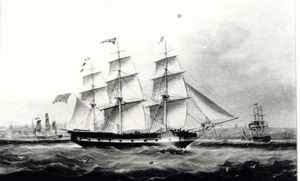 ¿Qué debieron de pensar al contemplar el imponente paisaje de acantilados rocosos y escarpados promontorios? Aunque habían visto la pobreza en Irlanda, la abyecta pobreza de este lugar, con sus rudimentarias chozas y sus abandonadas etapas de pesca encaramadas en las laderas de las colinas, les habría abrasado el corazón y la mente. La hermana Francis había vivido en la colonia
¿Qué debieron de pensar al contemplar el imponente paisaje de acantilados rocosos y escarpados promontorios? Aunque habían visto la pobreza en Irlanda, la abyecta pobreza de este lugar, con sus rudimentarias chozas y sus abandonadas etapas de pesca encaramadas en las laderas de las colinas, les habría abrasado el corazón y la mente. La hermana Francis había vivido en la colonia Sisters of Mercy from Newfoundland and Peru now minister in two areas of the country – in Puerto Eten, Reque and Eten, in the Chiclayo region and in Huarmey, Casma, Ancash. Eight sisters of the Congregation of the Sisters of Mercy of Newfoundland (including four native Peruvians) work with the people, especially poor people, in towns and small villages in these two regions of Peru.
Sisters of Mercy from Newfoundland and Peru now minister in two areas of the country – in Puerto Eten, Reque and Eten, in the Chiclayo region and in Huarmey, Casma, Ancash. Eight sisters of the Congregation of the Sisters of Mercy of Newfoundland (including four native Peruvians) work with the people, especially poor people, in towns and small villages in these two regions of Peru.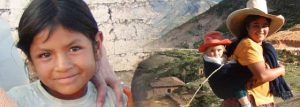
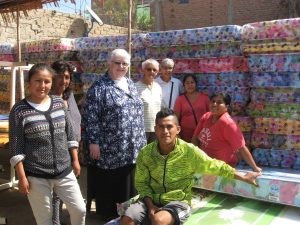 Educational programs and materials, e.g. reading materials, computers, student supplies are made available when resources allow. Emphasis is placed on working with women in areas of family care, health, nutrition, sewing, gardening, etc. Opportunities are provided for men and women to develop skills in carpentry and farming of family gardens – a cooperative venture to help people help themselves. Medical needs in the form of prescription drugs, diagnostic tests, x-rays, and special procedures or treatments are also provided through the fund.
Educational programs and materials, e.g. reading materials, computers, student supplies are made available when resources allow. Emphasis is placed on working with women in areas of family care, health, nutrition, sewing, gardening, etc. Opportunities are provided for men and women to develop skills in carpentry and farming of family gardens – a cooperative venture to help people help themselves. Medical needs in the form of prescription drugs, diagnostic tests, x-rays, and special procedures or treatments are also provided through the fund. Our Sisters of Mercy now minister in two areas of the country – in Puerto Eten, Reque and Eten, in the Chiclayo region and in Huarmey, Ancash. Six sisters of the Congregation of the Sisters of Mercy of Newfoundland (including four native Peruvians) work with the people, especially those made poor, in towns and small villages in these two regions of Peru.
Our Sisters of Mercy now minister in two areas of the country – in Puerto Eten, Reque and Eten, in the Chiclayo region and in Huarmey, Ancash. Six sisters of the Congregation of the Sisters of Mercy of Newfoundland (including four native Peruvians) work with the people, especially those made poor, in towns and small villages in these two regions of Peru. time. Peru was affected enormously by the onslaught of Covid and its health system collapsed totally. Together with our co-workers, the Conference of Religious of Lima, and The Conference of Religious of Chimbote, plans were made to look for and purchase an Oxygen Plant for the city of Chimbote.
time. Peru was affected enormously by the onslaught of Covid and its health system collapsed totally. Together with our co-workers, the Conference of Religious of Lima, and The Conference of Religious of Chimbote, plans were made to look for and purchase an Oxygen Plant for the city of Chimbote. In the Diocese of Chiclayo the Sisters had much support from Caritas organization, along with many individuals and NGOs, especially for their outdoor neighborhood kitchens . These kitchens are the main way people receive a hot meal each day.
In the Diocese of Chiclayo the Sisters had much support from Caritas organization, along with many individuals and NGOs, especially for their outdoor neighborhood kitchens . These kitchens are the main way people receive a hot meal each day. financial resources to obtain medical supplies and food for the people. Other aid came from the Peruvian government and other international agencies.
financial resources to obtain medical supplies and food for the people. Other aid came from the Peruvian government and other international agencies. These last couple of years the Mission Fund has been able to respond to many needs caused by anti-government protests in the country when people could not work as usual; then the very heavy rains and floods have taken away not only peoples place of work, but many have lost homes and possessions. The fund has been used to form comedores and ollas communes (dining areas and common pots) and was able to lessen hunger and disease in many pueblos. Migrants, older people, and children are a special concern for our communities and the Mission fund works constantly with our lay people and coordinators to identify their needs and respond.
These last couple of years the Mission Fund has been able to respond to many needs caused by anti-government protests in the country when people could not work as usual; then the very heavy rains and floods have taken away not only peoples place of work, but many have lost homes and possessions. The fund has been used to form comedores and ollas communes (dining areas and common pots) and was able to lessen hunger and disease in many pueblos. Migrants, older people, and children are a special concern for our communities and the Mission fund works constantly with our lay people and coordinators to identify their needs and respond.